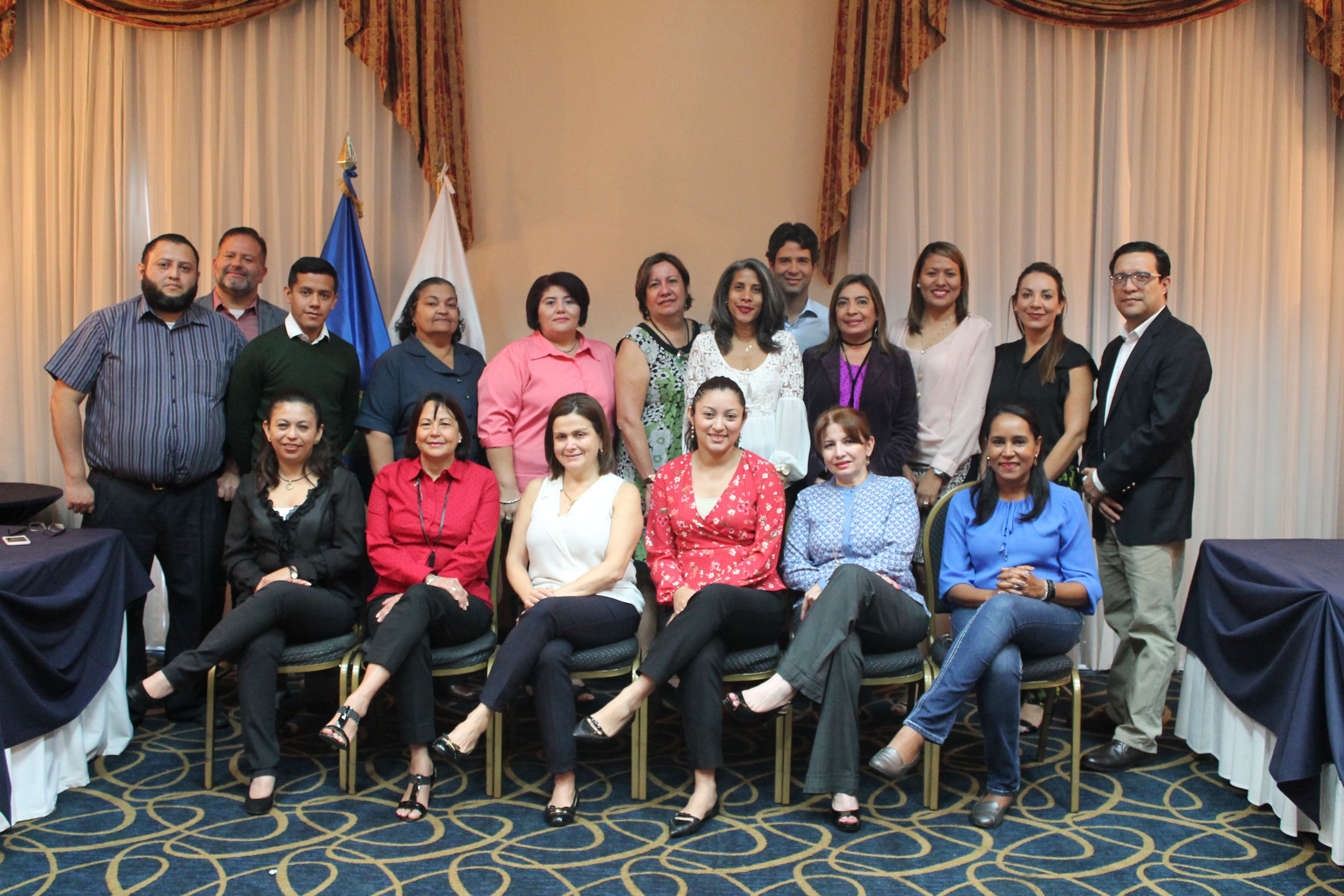
San Salvador, El Salvador, March 10, 2017
The workshop "Identification of actions to improve access for medicines and supplies for maternal and child health care and sexual and reproductive health" was held in San Salvador from March 8 to 10. The event was coordinated by the Executive Secretariat of the Council of Ministers Of Health of Central America and the Dominican Republic (SE-COMISCA), with the support of ISM-IDB and John Snow Inc. (JSI).
Key institutions in the procurement of medicines and inputs of the eight countries that make up the Central American Integration System (SICA), which includes the 7 countries that participate in SMI and the Dominican Republic, participated in the workshop with the purpose of identifying a strategic list of medicines and inputs for maternal and child and sexual and reproductive health services (SRH), which leads to the use of the Joint Negotiation mechanism for prices in order to generate economies of scale, lowering and harmonization of prices and, consequently, savings for the national public procurement systems, while maintaining the same quality of the inputs and medicines.
ES-COMISCA, through the Sub-Regional Technical Commission on Medicines (CTSM), under instructions of the Council of Ministers of Health of Central America and the Dominican Republic (COMISCA), has had the purpose of significantly and strategically expanding the harmonized list of medicines and, in collaboration with SMI-IDB, articulate the negotiation in order to establish a regional plan to eliminate or reduce bottlenecks and difficulties faced by the logistics chain of the countries and of the region. This has the purpose of facilitating access to medicines and medical devices for health care among the Central American population.
Three important results were achieved: a technical consensus to incorporate 35 medicines useful in the provision of care in SRH, obstetric emergencies and maternal and child services; the identification of 6 medical inputs that may generate interest in holding a Joint Negotiation, thus exploring the expansion of this cost containment mechanism for other items, as well as the identification of common regional challenges in the comprehensive medicines management, and general work lines were established in key components of the logistics cycle, which will allow for future actions that support performance improvement in terms of identifying needs, scheduling, procurement, IT systems, transportation processes and distribution.
ES-COMISCA, is the political strategic and technical administrative coordination body of the Central American Integration System (SICA) that strengthens the governing functions of COMISCA to generate optimal health conditions for the population of the region.
As part of the regional health action, ES-COMISCA coordinates the Joint Negotiation, being this a public policy established within the Central American community rights framework, which becomes a cost containment mechanism to facilitate access to quality, safe and efficacious medicines, at more favorable prices. This process is currently undergoing continuous improvement and has been certified by the ISO 9001:2015 standard.
John Snow Inc. is a public health management consulting and research organization that provides technical and management assistance for public health programs throughout the world, with broad expertise in supply chain management in HIV and sexual and reproductive health programs worldwide, having executed the DELIVER program financed by USAID globally. It supports countries, governments and communities to develop their own skills and identify solutions that meet their public health needs.
The Salud Mesoamérica Initiative (SMI) is a partnership between the governments of Belize, Costa Rica, El Salvador, Guatemala, Honduras, Nicaragua, Panama and the State of Chiapas (Mexico). Private and public donors, through results based financing, have as main goal the sustainable implementation of proven cost-efficient interventions in public health, among the poorest populations of the region. Priority areas for SMI are: nutrition, reproductive, maternal, neonatal health, , immunization and vaccination.
